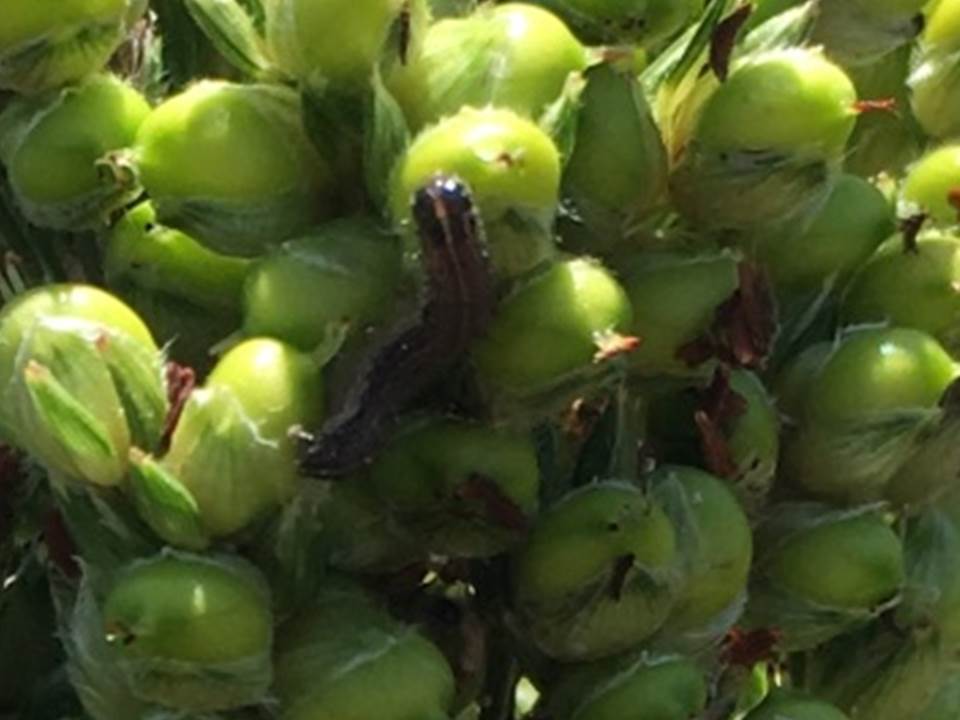–by Dr. Jeff Whitworth and Dr. Holly Schwarting
Sorghum is in various stages of development around NC Kansas. The late planted, which seems to be just in the whorl stage- to soft dough, or even farther along. Corn earworms (often called sorghum headworms/soybean podworms etc., depending upon the crop infested) are causing significant infestations and therefore concern because of the highly visible whorl feeding and subsequent “ragged”-looking leaves as they expand from the whorl. This feeding probably will have no effect on yield, and by the time the damage is noticed the worms are mostly finished feeding anyway. Therefore, treatment is rarely justified. Feeding on the kernels however which is the marketable product is a different story. Sampling for head-feeding worms is really relatively easy. Just take a small white bucket, bend the head over into the bucket and vigorously shake it against the sides of the bucket which dislodges the larvae. Then count the worms and divide into the number of heads sampled.
Rule of thumb: kernel-feeding larvae cause 5% loss/worm/head. Sorghum heads are most vulnerable from flowering to soft dough. These larvae are relatively susceptible to insecticides so efficacy is usually pretty good. However, these insecticides will reduce beneficial insect populations which can help later if any aphid populations develop.

